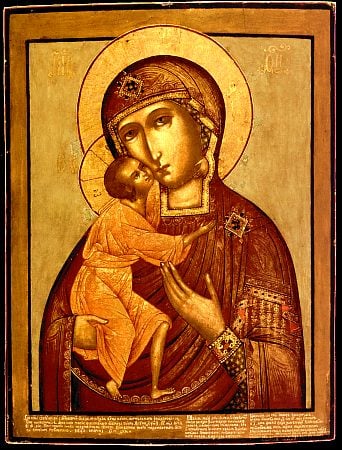
A trusted friend told me over the last week that my writing – both published and unpublished – was beginning to feel a little restless, a little rushed, even a bit feverish in its production of joy, excitement, and enthusiasm.
It would be tempting to blame this on the Asian American evangelicals with whom I hung out over the last week, but it would not be fair to impugn their spirituality. This is about me. It is not that my writing over the last week was bad, or I wrote anything untrue, or that what I had written and shared both publicly and privately were not encouraging to those who read them. This is not even about my ‘spiritual state’; that is between my confessors and me, not for the blogosphere. This is rather about the state of my intellect.
The insight this friend had for me was the same that I had had for him a few years back. He too is given to enthusiasm, excitement, and even emotional outbursts when he speaks publicly; I used to describe going to a talk with him as an experience.
When I was working in Seattle, this friend of mine came to speak at the local Newman Center on campus on how to think like a Catholic. The hour that followed was perhaps the most boring, tedious, and monotonous talk through which I have ever sat. I had thought that the talk would be about how to engage the passions in the task of thinking; if anything, what my friend delivered was anything but passionate. Certainly, it was methodical, distinguishing between ideas and issues, for example, where ideas were big world-changing thoughts whereas issues were the mot du jour, here today, gone tomorrow.
I was stunned. It was so boring, and during the question-and-answer session, I told him so. ‘This is the first time I have ever seen you so boring, so methodical, so tedious. What is with this intellectual chastity?’ I asked.
Intellectual chastity – this is a word that has come to mark our friendship. Both of us, given in different ways to wild bursts of enthusiasm and emotion, remind each other from time to time that if our bodies must be chaste, so must our minds.
Chastity, my friend reminded me this week, is not only about rigor. Everything that I wrote this week was, after all, true, and indeed, it was full of exuberance for many of the concrete things that I could recount. But rigor does not chastity make. Chastity is what the desert mothers and fathers call the passionless passion – that even as Christ dies his agonizing death in a way that makes Benedict XVI describe it as the ‘mad eros of the cross,’ he is passionless about it, emptying himself even to death, death on a cross. Chastity is kenotic; it is about the emptying of the self so that the body, the mind, and the heart can come into the state of negation where the Holy Spirit can be grasped and possessed. If we were to take this Latin term chastity and fully own it as Byzantine, the passionless passion sounds to me nothing short of hesychasm, the stilling of the heart by quite literally bringing the ‘intellect’ (the nous) into the heart through the negative repetition of the Jesus Prayer so that I encounter Christ there. All intellectual work – all of the writing that I therefore do – is an extension of such hesychastic prayer; it must emanate from the passionless passion, the chastity of the nous.
I think I’ve found what I need to work through during this Great Fast, then. My nous must become chaste; it must descend into the heart; it must beat out the words of the Jesus Prayer. Perhaps there will be visible changes to my writing, both public and private, and perhaps some things will stay the same; who knows? But now I am beginning to understand that the chastity of the intellect, the stillness of the mind, is important for the sustenance of intellectual work.
And thus, I pray the prayer of Holy Antiochus in the Prayers Before Sleep in the Jordanville Prayerbook:
O Ruler of all, Word of the Father, O Jesus Christ, Thou Who art perfect: For the sake of the plenitude of Thy mercy, never depart from me, but always remain in me Thy servant. O Jesus, Good Shepherd of Thy sheep, deliver me not over to the sedition of the serpent, and leave me not to the will of Satan, for the seed of corruption is in me. But do Thou, O Lord, worshipful God, holy King, Jesus Christ, as I sleep, guard me by the Unwaning Light, Thy Holy Spirit, by Whom Thou didst sanctify Thy disciples. O Lord, grant me, Thine unworthy servant, Thy salvation upon my bed. Enlighten my mind with the light of understanding of Thy Holy Gospel; my soul, with the love of Thy Cross; my heart, with the purity of Thy word; my body, with Thy passionless Passion. Keep my thought in Thy humility, and raise me up at the proper time for Thy glorification. For most glorified art Thou together with Thine unoriginate Father, and the Most-holy Spirit, unto the ages. Amen.
O Lord and Master of my life, drive from me the spirit of indifference, despair, lust for power, and idle chatter.
Instead, bestow on your servant the spirit of integrity, humility, patience, and love.
Yes, my Lord and King, grant me to see my own sins and not judge my sisters and brothers, for you are blessed, both now and ever and for ages of ages. Amen.












